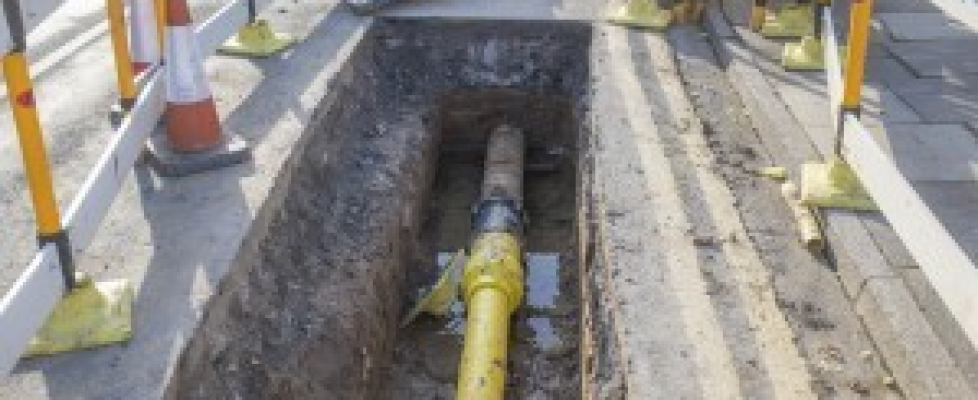Materials for Repiping: What Are the Best Options for Your Home?
When it comes to replacing old pipes in your home, selecting the right materials for repiping is crucial. Repiping is one of the most common and significant plumbing jobs, especially for older homes with aging plumbing systems. While repiping can be an expensive and time-consuming process, it offers long-term benefits, improving the overall efficiency, safety, and durability of your home’s plumbing system. The right materials can make a significant difference, ensuring that your new plumbing will last for many years with minimal maintenance.
Why Repiping Is Necessary

What Materials Should Replace Old Steel Pipes?
There are several materials commonly used in modern repiping, each with its own advantages. Choosing the right one depends on factors like budget, water temperature requirements, and the layout of your home. While a professional plumber can provide the best advice for your specific situation, here are some of the top materials used in repiping today.
1. CPVC (Chlorinated Polyvinyl Chloride)
CPVC is one of the most commonly used materials for repiping, particularly in homes where budget is a concern. CPVC pipes are a type of plastic that is known for its flexibility and strength, making it an ideal choice for both hot and cold water lines. Here are a few reasons why CPVC is so popular:
- Temperature Resistance: CPVC pipes can withstand both high and low temperatures, making them suitable for hot water lines as well as drain lines.
- Corrosion-Free: Unlike metal pipes, CPVC doesn’t corrode, ensuring long-term reliability.
- Flexibility: CPVC pipes are easier to install in tight spaces due to their flexibility, which reduces labor costs.
If you’re looking for a cost-effective option that will still provide reliable performance, CPVC is an excellent choice. It’s widely available, affordable, and can last for many years without issues.
2. Copper
Copper pipes have been a standard in plumbing for decades, and for good reason. Copper is a durable metal that offers many advantages over older materials like galvanized steel. Here’s why copper is such a popular option for repiping:
- Durability: Copper is resistant to corrosion and can handle high water pressure, making it a long-lasting option for repiping.
- Flexibility: While copper is a strong metal, it’s also relatively flexible compared to older materials like steel, allowing it to bend and fit in tight spaces.
- Safety: Copper is a non-toxic material that won’t leach harmful chemicals into your water supply, making it one of the safest choices for plumbing systems.
While copper repiping can be more expensive than CPVC, its longevity and high quality make it an excellent investment for homeowners looking for a material that will last for decades without needing replacement.
3. PEX (Cross-Linked Polyethylene)
PEX pipes are becoming increasingly popular in modern homes due to their flexibility and durability. PEX is a type of plastic that can be used in both hot and cold water applications, and it’s especially favored for repiping because of its versatility. Here’s why PEX is a top choice for many homeowners:
- Flexibility: PEX pipes are highly flexible, allowing them to be easily installed in tight spaces, even around corners without the need for joints or fittings.
- Durability: PEX pipes are resistant to freezing, making them an ideal choice for colder climates where pipes are at risk of bursting. They are also resistant to corrosion, so they last a long time.
- Ease of Installation: PEX pipes are easy to work with, reducing the overall labor costs involved in a repiping project.
Although PEX is more expensive than CPVC, it is highly durable and can last for decades without any major issues. It’s a fantastic choice for homeowners who want a long-lasting solution that’s also easy to install.
Which Material is Best for Repiping?
When deciding on the best material for repiping your home, several factors come into play. These include your budget, the expected lifespan of the material, and the specific needs of your plumbing system. Let’s break down the key factors to help you make an informed decision:
- For Cost-Effectiveness: If you’re looking for an affordable repiping option, CPVC is likely your best bet. It’s less expensive than copper or PEX, and it’s suitable for both hot and cold water lines. CPVC is also resistant to corrosion, so you won’t have to worry about replacing it anytime soon.
- For Longevity and Durability: PEX and copper are both highly durable and resistant to corrosion, making them excellent choices for homeowners who want a system that will last for decades. PEX offers more flexibility, which makes it easier to install in tight spaces, while copper has a long-standing reputation for strength and reliability.
- For High-Quality Plumbing: If you prioritize safety and water quality, copper is the best material for repiping. It’s non-toxic and won’t contaminate your water supply, ensuring that the water in your home is safe to drink and use.
Conclusion: Choosing the Right Material for Your Repiping Needs
When it comes to repiping, choosing the right materials is essential to ensure a long-lasting, efficient, and reliable plumbing system. While CPVC is an excellent option for homeowners looking to keep costs down, PEX and copper offer superior durability and performance, making them well worth the investment.
To make the best decision for your home, it’s important to consult with a professional plumber who can assess your plumbing system and recommend the best materials based on your specific needs. Whether you’re focused on cost, longevity, or safety, there is a repiping material that will meet your expectations and improve the overall performance of your home’s plumbing.
For expert advice on repiping materials and professional installation services, Super Brothers is here to help. Contact Super Brothers today to discuss your repiping needs and ensure your home’s plumbing system is built to last.




